Air Force warns programs will come to ‘screeching halt’ without budget deal
Monday, 13 November 2023 22:06

NASA slows down work on Mars Sample Return due to budget uncertainty
Monday, 13 November 2023 22:01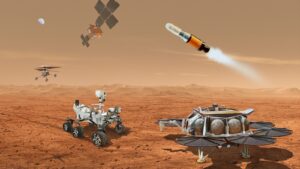
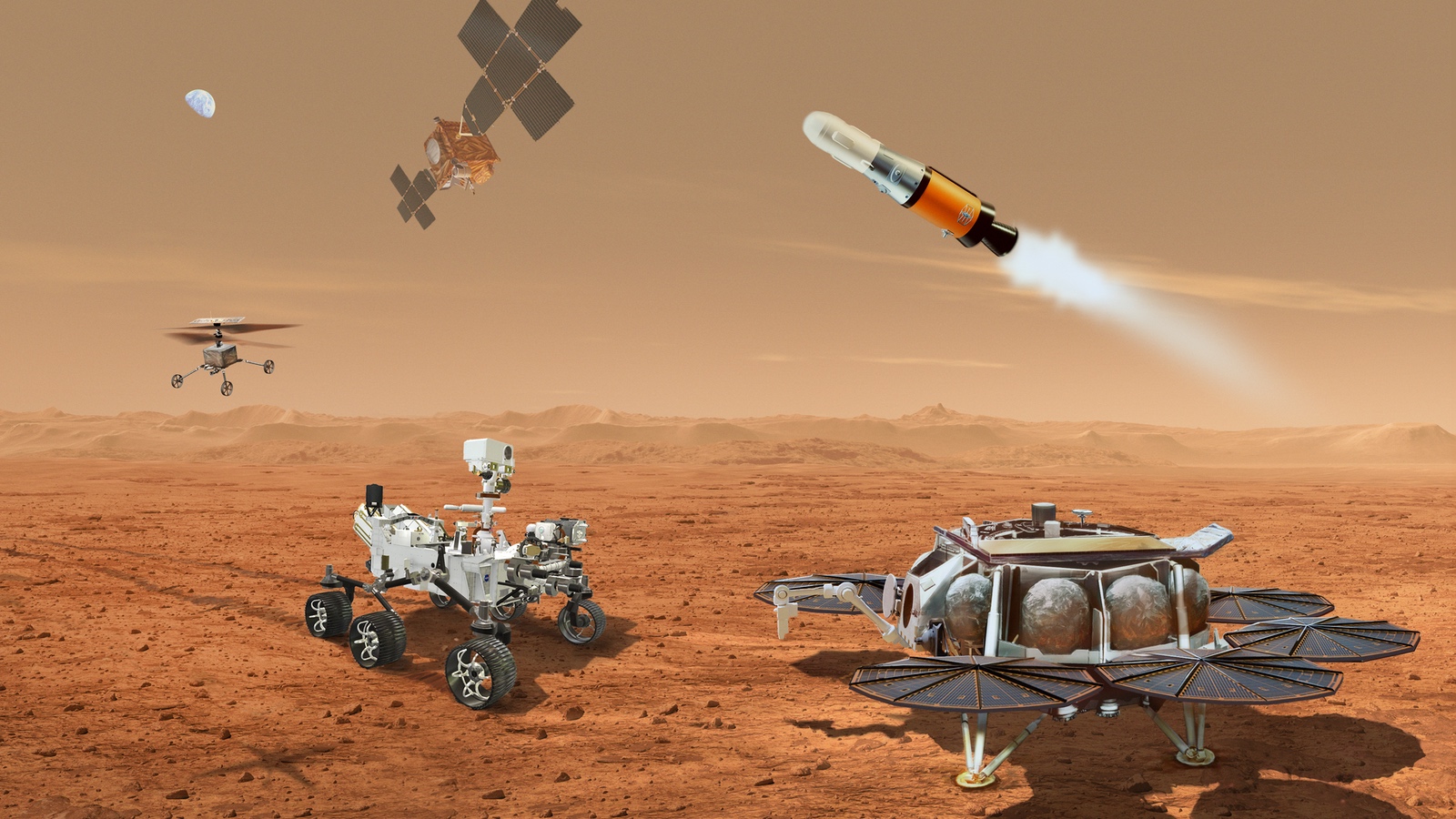
ESA is testing a modular multipurpose rover that could be a science lab or a tiny bulldozer
Monday, 13 November 2023 17:48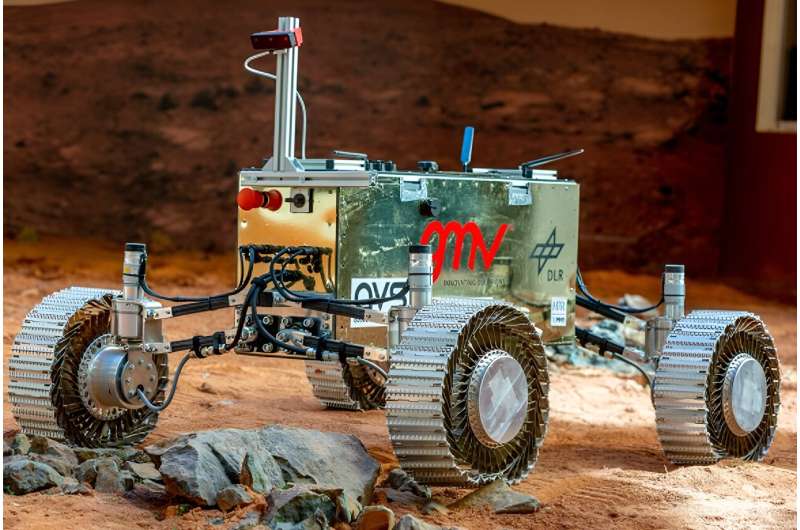
Most rovers have been built for Mars, and each one of them is a complex machine designed with specific goals and terrains in mind. But the moon is different than Mars. We're not searching for life there; we're trying to establish a presence.
In recognition of the difference, the ESA is developing modular rovers that can serve different needs with only small modifications.
It's called the European Moon Rover System (EMRS), and its goal is to "develop a versatile surface mobility solution for future lunar missions," according to newly published papers. The surface mobility systems will serve four upcoming ESA missions: the Polar Explorer (PE), In-Situ Resource Utilization (ISRU), Astrophysics Lunar Observatory (ALO) and Lunar Geological Exploration Mission (LGEM).
NASA wants to learn to live off the land on the moon
Monday, 13 November 2023 17:48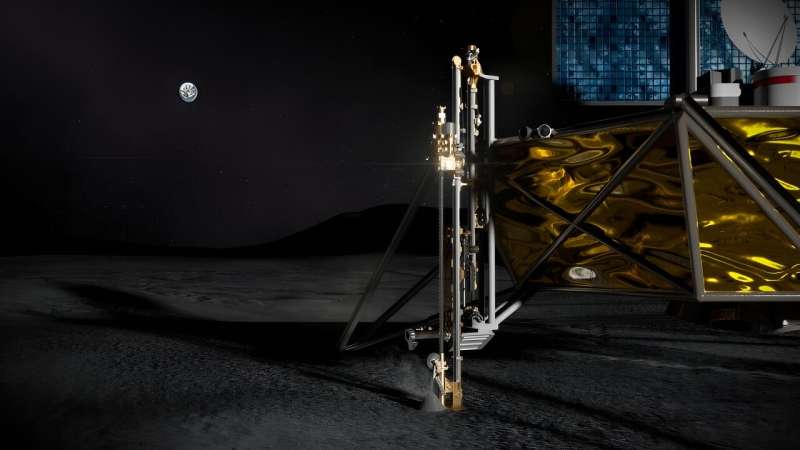
In preparation for the upcoming Artemis missions to the lunar south pole, NASA recently solicited a request for information (RFI) from the lunar community to map out its future Lunar Infrastructure Foundational Technologies (LIFT-1) demonstration for developing In-situ Resource Utilization (ISRU) technologies as part of the agency's ambitious Lunar Surface Innovation Initiative (LSII).
The primary goal of LIFT-1, which is being driven by NASA's Space Technology Mission Directorate (STMD), is to advance ISRU technologies for extracting oxygen from the lunar regolith, including manufacturing, harnessing, and storing the extracted oxygen for use by future astronauts on the lunar surface.
China wants to retrieve a sample of Mars by 2028
Monday, 13 November 2023 16:27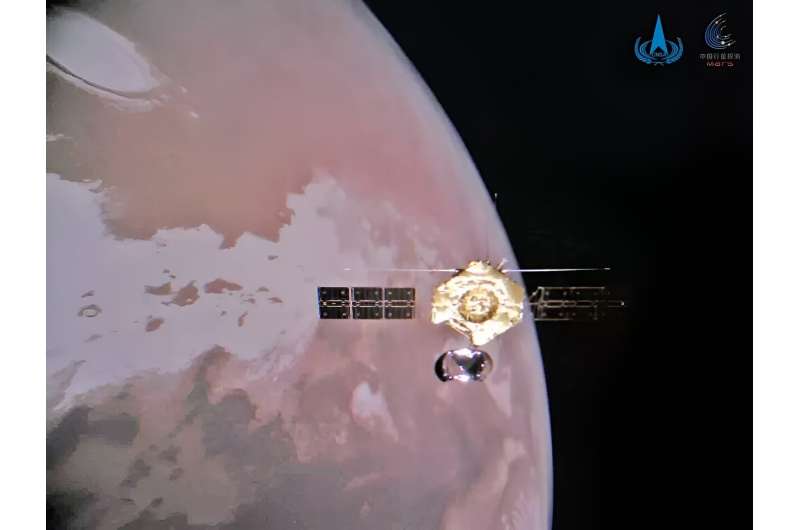
China continues to take great strides as part of its goal to become a superpower in space and a direct competitor with NASA. In addition to its proposed expansion of the Tiangong space station and the creation of the International Lunar Research Station (ILRS), China is also planning on sending crewed missions to Mars in the coming decade. In preparation for the arrival of taikonauts on the red planet, China is gearing up to return samples of Martian soil and rock to Earth roughly two years ahead of the proposed NASA-ESA Mars Sample Return (MSR).
This mission will be the third in the China National Space Administration's (CNSA) Tianwen program (Tianwen-3) and will consist of a pair of launches in 2028 that will return samples to Earth in July 2031.
AI chemist synthesizes catalyst for oxygen production from Martian meteorites: One step closer to Mars immigration?
Monday, 13 November 2023 15:00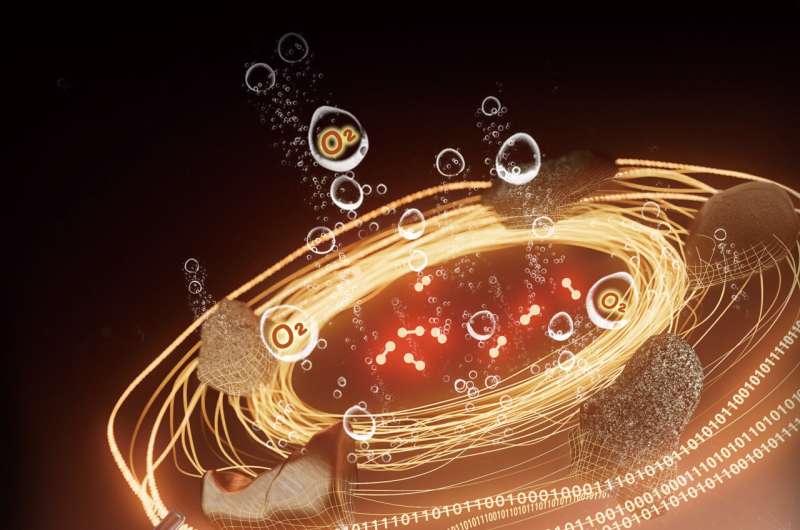
Immigration to and living on Mars have long been depicted in science fiction. But before that dream turns into reality, there is a hurdle humans have to overcome—the lack of chemicals such as oxygen essential for long-term survival on the planet. However, the recent discovery of water activity on Mars is promising.
Scientists are now exploring the possibility of decomposing water to produce oxygen through electrochemical water oxidation driven by solar power with the help of oxygen evolution reaction (OER) catalysts. The challenge is to find a way to synthesize these catalysts in situ using materials on Mars, instead of transporting them from the Earth, which is costly.
To tackle this problem, a team led by Prof. Luo Yi, Prof.
From Kyiv to Taipei: Unraveling the impact of space on military and Taiwan’s daunting prospects
Monday, 13 November 2023 14:00

From Kyiv to Taipei: Unraveling the impact of space on military power and Taiwan’s daunting prospects
Monday, 13 November 2023 14:00

A successful liftoff: Space shuttle Endeavour's rockets are installed
Monday, 13 November 2023 13:40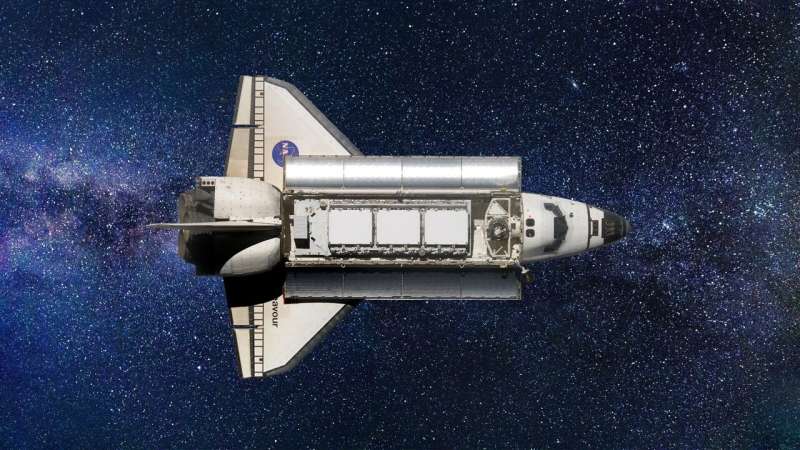
In a delicate maneuver, crews successfully lifted into place giant rockets at the California Science Center, the first large components installed at the future home of the space shuttle Endeavour.
Donated by Northrup Grumman, the solid rocket motors are each the size of a Boeing 757 fuselage and weigh 104,000 pounds. They had to be carefully moved from a horizontal to vertical position by crane before being lowered into place in the new exhibit at the Samuel Oschin Air and Space Center.
One was installed Tuesday, the other Wednesday.
Crews were then able to place the 177 pins attaching each solid rocket motor to the base of the solid rocket booster, known as the aft skirt. Each pin is 1 inch in diameter and about 2 inches long.
"It felt great," California Science Center President Jeffrey Rudolph said of the successful installation. "We've got two solid rocket motors standing tall in the new building now."
Visitors to the museum can now see the top of the rockets from outside the construction site. At one point during the crane lift, the solid rocket motors could even be seen from the 110 Freeway.
Monitoring methane emissions from space
Monday, 13 November 2023 11:00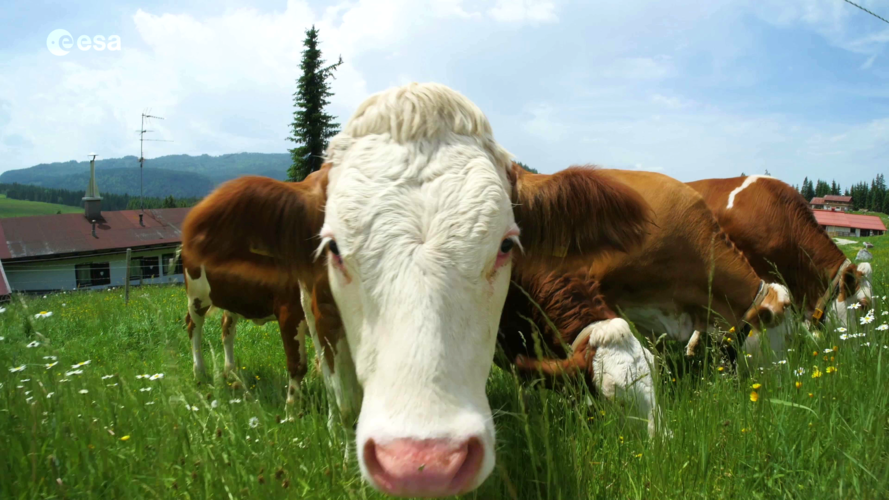 Video:
00:03:23
Video:
00:03:23
Methane is the second most important greenhouse gas contributor to climate change after carbon dioxide. Curbing methane emissions could deliver immediate and long-lasting benefits for the climate, seeing as the gas only lingers in the atmosphere for a relatively short time.
Satellites have a really important role to play in reducing greenhouse gas emissions. The Tropomi instrument onboard the Copernicus Sentinel-5P satellite is the only instrument that maps global methane concentrations every single day. This lets scientists detect hotspots for large methane sources around the world – allowing us to address the consequences of methane emissions on our
Monitoring methane from space
Monday, 13 November 2023 11:00 Video:
00:03:23
Video:
00:03:23
Methane is the second most important greenhouse gas contributor to climate change after carbon dioxide. Curbing methane emissions could deliver immediate and long-lasting benefits for the climate, seeing as the gas only lingers in the atmosphere for a relatively short time.
Satellites have a really important role to play in reducing greenhouse gas emissions. The Tropomi instrument onboard the Copernicus Sentinel-5P satellite is the only instrument that maps global methane concentrations every single day. This lets scientists detect hotspots for large methane sources around the world – allowing us to address the consequences of methane emissions on our
Two ESA Φ-lab-enabled satellites launched
Monday, 13 November 2023 08:15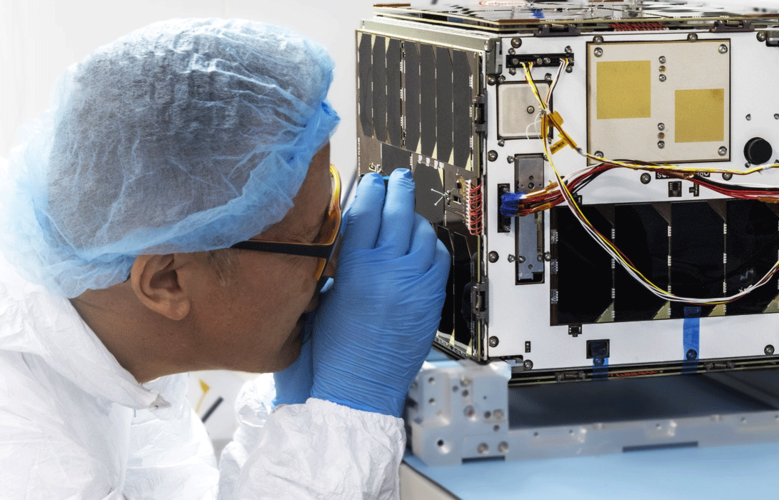
MANTIS, the first satellite mission to be supported from concept to liftoff by ESA’s Earth Observation InCubed programme, has been launched on a SpaceX Falcon 9 rocket. MANTIS carries a high-resolution multispectral camera coupled with a powerful AI processing unit.
Intuition-1 was also launched on the same rocket and will similarly demonstrate the advantages of onboard AI capabilities, in this case in tandem with a hyperspectral imager. The satellite’s machine learning algorithms were developed under the ESA-funded Genesis project
A third pair of SES' O3b mPower satellites launches from Cape Canaveral
Monday, 13 November 2023 02:10 In a significant advancement for global telecommunications, SpaceX's Falcon 9 rocket successfully launched two new communication satellites, O3b mPOWER 5 and 6, for Luxembourg-based SES S.A. The launch occurred on Sunday at the opening of their 89-minute window at 4:08 p.m. EST from Space Launch Complex 40 (SLC-40), Cape Canaveral Space Force Station, Florida. These satellites are destined for a
In a significant advancement for global telecommunications, SpaceX's Falcon 9 rocket successfully launched two new communication satellites, O3b mPOWER 5 and 6, for Luxembourg-based SES S.A. The launch occurred on Sunday at the opening of their 89-minute window at 4:08 p.m. EST from Space Launch Complex 40 (SLC-40), Cape Canaveral Space Force Station, Florida. These satellites are destined for a 




